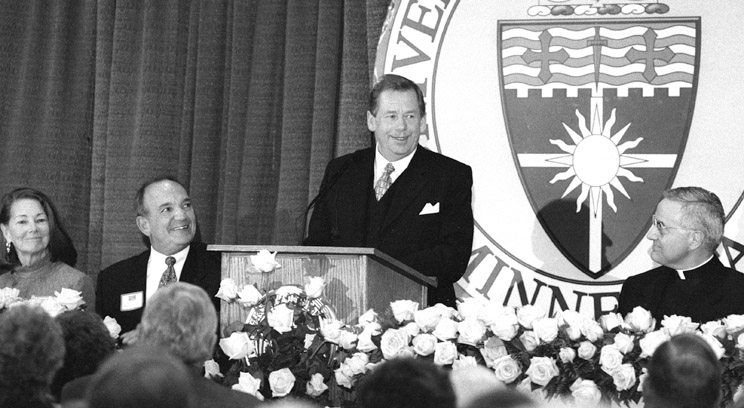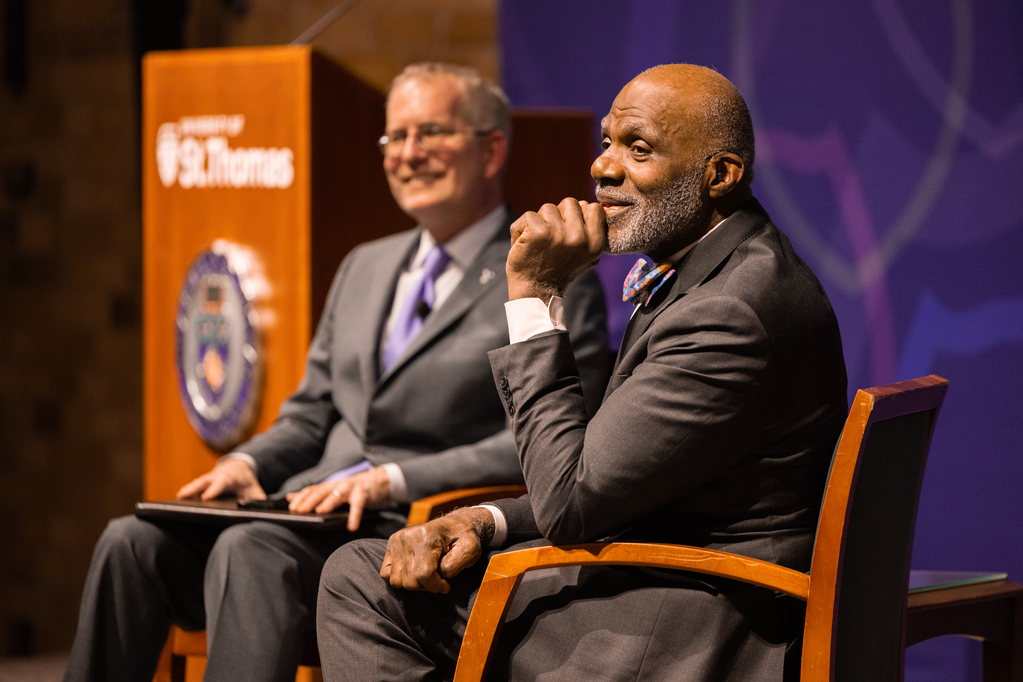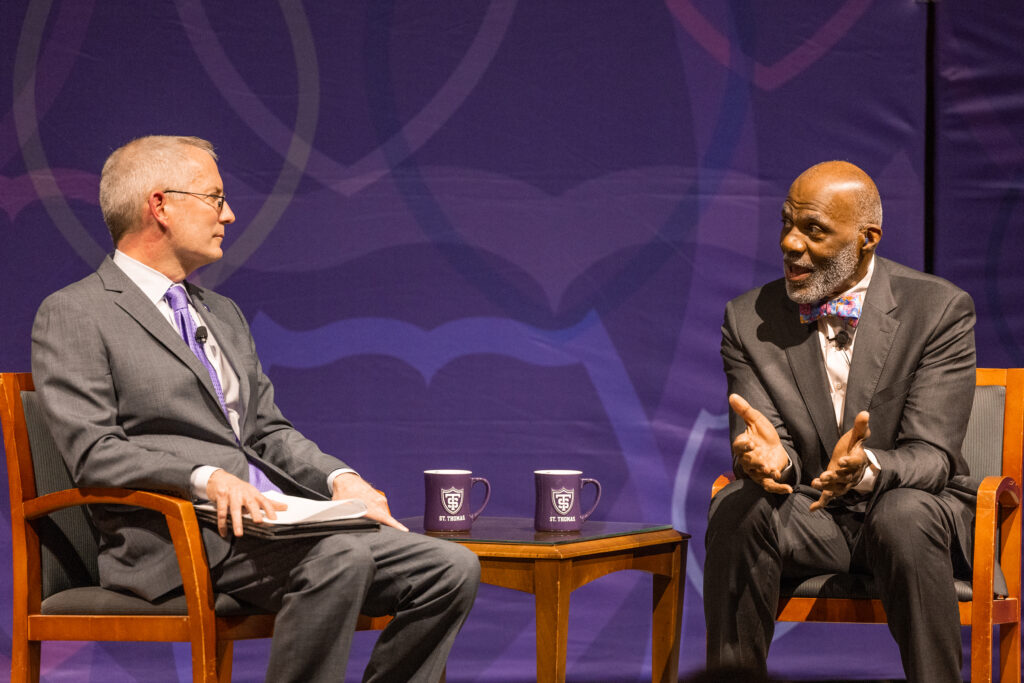In cold weather I change my exercise regimen from brisk walks around the campus to workouts on my cross trainer in my basement. One evening, I noticed a framed photo of the late Vaclav Havel, former president of the Czech Republic. He’s standing next to a painting depicting a Gospel writer with an angel whispering in his ear. Havel, with a sheepish grin, is cupping his ear as if to eavesdrop for a little “inspiration.”
The picture is signed “Havel,” with a heart next to his signature.

Father Dennis Dease
The photo was a gift from the former president, author, poet and playwright who led his country’s “Velvet Revolution” and visited St. Thomas in 1999 for the inauguration of the Vaclav Havel Civil Society Symposium. Havel, who died in 2011, is a symbol of civility, and what can be accomplished through it, even under the most repressive conditions.
Perhaps I noticed his picture because our country had concluded another election season, and because I had sent the following message to St. Thomas administrators: “Thank you for the great work you did over the past several months to promote an atmosphere of civility and respect during a particularly contentious and emotional election season. No matter whom you supported, we all won. I’m proud of the leadership you displayed, and I’m proud of our students, faculty and staff.”
I am proud of St. Thomas for many reasons, and one that stands out is the culture of civility that has developed here and mostly prevails, even in the most ardent, heated debates.
In an address I gave on campus in 1998, I shared a deeply held personal belief: “By its practice of civility a society reflects the value it places on the human person and perhaps even on human life itself.” And I raised a question: “Could it be that a community that promotes civility in so doing also sustains its commitment to civil and human rights?”
I’ve long believed that civility is more than manners. It is a way of showing love and respect for our neighbor. As Stephen Carter wrote in his 1998 book, Civility: Manner, Morals, and the Etiquette of Democracy, “It is morally better to be civil than to be uncivil.”
Again, as I said in my speech: “If we have abandoned politeness and have become a harsher nation in the way we deal with one another in the give and take of everyday life, then should we be surprised if this callousness be also found in the way we value life itself?”
I also asked: “Should a Catholic university prize courtesy? Can an urban university model ‘urbanity’? Is it too much to hope that the liberal arts would inspire gentility and humanism?” As I said then and believe today, “It is indeed proper and appropriate for a Catholic, liberal arts, and urban university both to model and to teach civility.”
I believe St. Thomas has done that. And I believe this university’s faith dimension has played a key role in creating a truly genuine culture of civility. The connection between grace and graciousness was recognized by the Catholic, French-born, British writer and poet, Hilaire Belloc, when he wrote in “Courtesy,”
Of courtesy, it is much less
Than courage of heart or holiness,
Yet in my walks it seems to me
That the Grace of God is in courtesy.
A chance encounter with a photograph of Havel has reminded me that he is not the only one straining to catch some inspiration from an angel. It’s happening right here at St. Thomas.
Read more from St. Thomas Magazine.







